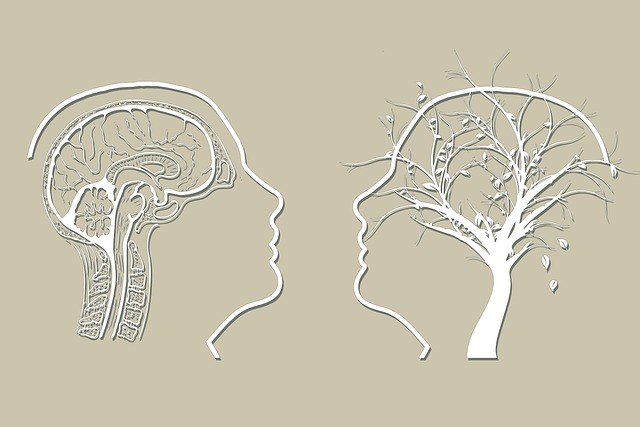Positive thinking and mental wellness journaling are powerful tools that significantly impact an individual's overall well-being, especially for those managing Castle Rock Obsessive Compulsive Disorder (OCD) therapy. Practices like mindfulness meditation, affirmations, and gratitude help challenge negative thought patterns, reduce stress, anxiety, and depression, while boosting emotional intelligence and self-esteem. Incorporating these into daily routines strengthens resilience and enhances mental health outcomes, acting as crisis intervention strategies alongside structured OCD therapy.
Positive thinking exercises have emerged as a powerful tool in mental health, particularly in managing conditions like Castle Rock Obsessive Compulsive Disorder (OCD) therapy. This article delves into the transformative potential of positive thinking, exploring its impact on mental well-being. We discuss strategies for identifying and challenging negative thought patterns, offering practical steps to implement positive thinking exercises effectively. Additionally, we provide insights into integrating positivity into daily routines for sustainable change, empowering individuals to overcome OCD symptoms in Castle Rock.
- Understanding Positive Thinking and Its Impact on Mental Health
- Identifying Negative Thought Patterns in Castle Rock OCD Therapy
- Strategies for Implementing Positive Thinking Exercises
- Integrating Positivity into Daily Routines for Sustainable Change
Understanding Positive Thinking and Its Impact on Mental Health

Positive thinking is a powerful tool that can significantly impact an individual’s mental health and overall well-being. It involves cultivating a mindset focused on optimism, gratitude, and positive self-talk, which can counteract negative thought patterns and emotions. Research has shown that this simple yet profound practice can reduce stress, anxiety, and depression, leading to improved emotional intelligence and a greater sense of control over one’s life.
For individuals dealing with conditions like Castle Rock Obsessive Compulsive Disorder (OCD), positive thinking exercises can be a valuable addition to therapy. Journaling is an effective Mental Wellness Journaling Exercise Guidance that encourages individuals to reflect on their thoughts and emotions. By recording experiences, thoughts, and feelings in a journal, one can identify negative thought cycles and replace them with more positive and realistic ones. This process boosts confidence and enhances emotional resilience, ultimately contributing to better mental health outcomes.
Identifying Negative Thought Patterns in Castle Rock OCD Therapy

In Castle Rock OCD therapy, identifying negative thought patterns is a foundational step toward promoting emotional well-being. Obsessive-compulsive disorder (OCD) is characterized by intrusive thoughts and repetitive behaviors that can significantly impact daily life. Recognizing these unhelpful cognitive processes is crucial in beginning the journey towards recovery. Therapists often employ various techniques to help individuals become more aware of their negative thought cycles, such as cognitive behavioral therapy (CBT), which focuses on challenging and modifying these patterns. By understanding the specific triggers and nature of their OCD symptoms, individuals can start to disengage from unproductive thinking.
Self-care practices and mindfulness meditation are essential emotional well-being promotion techniques that often accompany Castle Rock OCD therapy. Mindfulness involves training one’s attention to stay in the present moment without judgment, helping individuals observe their thoughts as they arise without getting entangled in them. This practice can be particularly effective in breaking the cycle of negative thought patterns associated with OCD. Incorporating regular mindfulness meditation into self-care routines allows individuals to cultivate a sense of detachment from intrusive thoughts, fostering greater resilience and emotional balance.
Strategies for Implementing Positive Thinking Exercises

Implementing positive thinking exercises into your routine can be a game-changer for mental health and well-being, especially for those managing conditions like Castle Rock Obsessive Compulsive Disorder (OCD) therapy. The key to success lies in consistent practice and choosing strategies tailored to individual needs. One effective approach is to start with simple mindfulness techniques, such as focusing on the present moment and reframing negative thoughts. These exercises help build resilience by teaching individuals to recognize and challenge intrusive thoughts, fostering a more positive mindset over time.
Additionally, incorporating affirmations and gratitude practices can significantly boost self-esteem and overall satisfaction. Crisis intervention guidance can be provided through structured activities that encourage individuals to identify and replace unhelpful thought patterns with realistic, encouraging statements. Regular reflection on personal strengths and accomplishments further strengthens the benefits of these exercises, providing a powerful tool for managing mental health challenges effectively while promoting positive thinking in everyday life.
Integrating Positivity into Daily Routines for Sustainable Change

Incorporating positive thinking into daily routines is a powerful strategy for fostering mental wellness and promoting sustainable change. It’s not just about fleeting moments of optimism; it involves cultivating a mindset that permeates every aspect of life. By setting aside dedicated time for exercises like gratitude practices, affirmations, or even simply reflecting on the day’s positives, individuals can gradually shift their focus towards resilience-building and self-esteem improvement. This consistent practice, akin to building a robust castle wall, strengthens one’s mental fortress against negative thoughts and stress, much like Castle Rock Obsessive Compulsive Disorder (OCD) therapy targets and reinforces healthy behaviors.
Over time, these positive routines become ingrained in one’s schedule, creating a harmonious balance that enhances overall well-being. The key lies in consistency; making these practices a non-negotiable part of the daily routine ensures their longevity and effectiveness. As individuals witness the positive impact on their mental resilience, they may find themselves better equipped to face challenges with renewed confidence and optimism, ultimately leading to a more fulfilling and balanced life.
Implementing positive thinking exercises, as discussed in this article, offers a powerful tool for managing mental health conditions like Castle Rock Obsessive Compulsive Disorder (OCD). By understanding and identifying negative thought patterns, individuals can begin to transform their mindset through strategies tailored to their needs. Integrating positivity into daily routines enables sustainable change, fostering resilience and improved well-being. Remember, consistent practice is key; with time, positive thinking can become a transformative force in one’s life.












